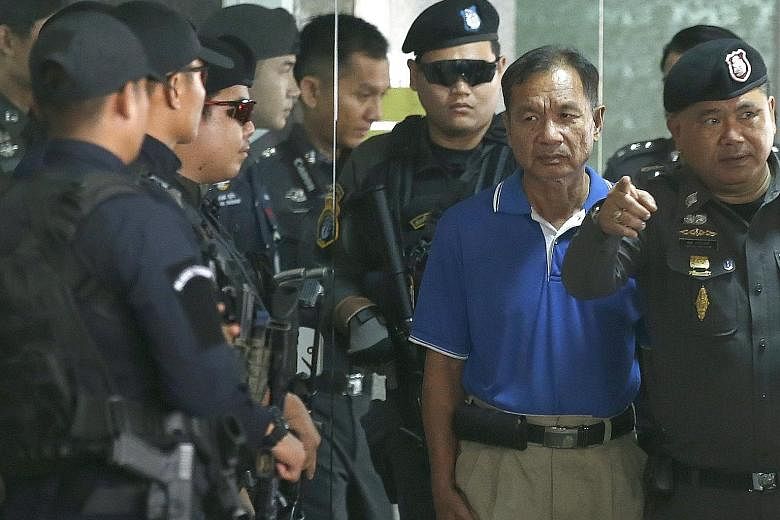BANGKOK • A 62-year-old man arrested in connection with a bomb blast at a military-run hospital in Bangkok claimed responsibility for the attack yesterday, saying that he objected to unelected military rulers.
Last month's attack on Phramongkutklao Hospital injured more than 20 people. It coincided with the third anniversary of a May 2014 military coup. In overthrowing an elected government, the military said at the time that it had to take control after months of turbulence. This disorder included street protests aimed at ousting the government of populist politicians who have won every election since 2001.
Suspect Watana Pumret, who was detained last week, admitted to the charges against him, including conspiring to kill, causing injury and illegal possession of explosives. He also took responsibility for two smaller explosions in the Thai capital last month that hurt several people.
"All of my past actions were a symbolic gesture against the coup government. I don't wish to harm people," Watana said at a news conference organised by the police, his first public appearance since his arrest.
"I'm a normal person who doesn't agree with a military government that wasn't elected."
He said he acted alone.
Police said Watana had been appointed a police lawyer. Reuters was not able to contact the lawyer.
Watana has been held and questioned at an army base being used by the military as a temporary prison.
The military has the power to detain civilians at military camps without charge. Rights activists say some face unfair trials in military courts, which the junta has designated for cases involving national security.
Since the coup, the military has kept a tight lid on dissent by arresting critics and banning public protests.
But the capital has seen sporadic violence, including a deadly explosion at a shrine in August 2015 that killed 20 people, most of them foreigners. Two men, Uighur Muslims from China's restive Xinjiang region, are on trial for that bombing, which the authorities have said was retaliation for a crackdown on human smuggling networks.
National police chief Jakthip Chaijinda said he had ordered further investigations into the recent bombings, adding that Watana may not have acted alone.
Prime Minister Prayut Chan-o-cha has said further unrest could mean a delay in a general election which is expected to take place next year. Yesterday, however, he said the vote was still on course.
REUTERS

